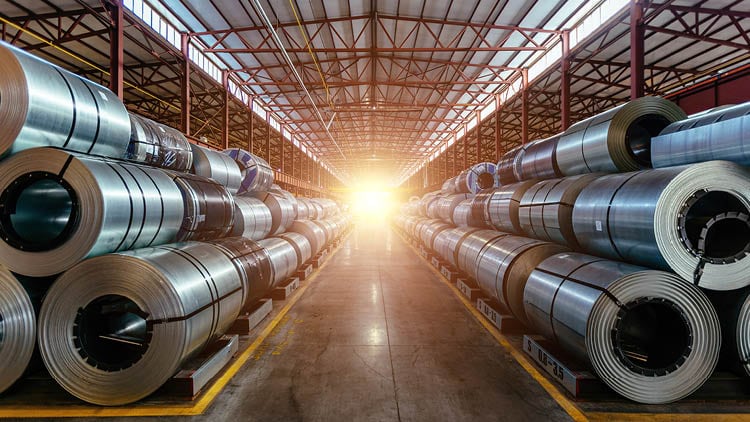Background
With continued developments in US trade policy, please see this week's key updates in our latest round-up on tariffs, global tax and beyond.
The week in summary
While the past week has seen a slow-down in respect of trade developments, there are still key updates related to the IEEPA tariff ruling, US and China trade deal, industry expert warnings of steel tariffs and proposed aircraft tariffs.
Appeals Court allows Trump’s emergency tariffs to stay in place during legal review
The US Court of Appeals for the Federal Circuit has allowed President Trump's tariffs to remain in effect while it reviews their legality under an emergency economic powers law. The court emphasised the case's "exceptional importance" and took the unusual step of assigning it to the full 11-judge panel, with arguments set for 31 July.
With this ruling, the “reciprocal” tariffs which have been in place since 5 April will remain until such a time as the court makes a determining ruling.
The recent appeals court ruling does not affect other tariffs imposed under other legal authorities, such as those on steel and aluminium. It specifically concerns tariffs enacted under the International Emergency Economic Powers Act (IEEPA), which a lower court found President Trump misused.
US and China reach preliminary deal to ease trade tensions
The US and China have agreed in principle on a framework to reduce trade tensions, following two days of talks in London. The deal aims to resolve disputes over rare earth minerals and magnets. US Commerce Secretary Howard Lutnick confirmed the progress, and both sides will now seek final approval from Presidents Donald Trump and Xi Jinping, respectively.
During recent trade talks in London, the US and China agreed in principle on a framework to reduce tensions, focusing on rare earth minerals vital for modern tech. The agreement builds on a temporary truce reached last month, though both sides have since accused each other of violations. The framework, referred to as the "Geneva consensus," now awaits approval from Presidents Trump and Xi following a positive phone call on 5 June.
In a post on Truth Social, President Trump announced the deal, stating;
“OUR DEAL WITH CHINA IS DONE, SUBJECT TO FINAL APPROVAL WITH PRESIDENT XI AND ME. FULL MAGNETS, AND ANY NECESSARY RARE EARTHS, WILL BE SUPPLIED, UP FRONT, BY CHINA. LIKEWISE, WE WILL PROVIDE TO CHINA WHAT WAS AGREED TO, INCLUDING CHINESE STUDENTS USING OUR COLLEGES AND UNIVERSITIES (WHICH HAS ALWAYS BEEN GOOD WITH ME!). WE ARE GETTING A TOTAL OF 55% TARIFFS, CHINA IS GETTING 10%. RELATIONSHIP IS EXCELLENT! THANK YOU FOR YOUR ATTENTION TO THIS MATTER!”
It was later confirmed by a white house official that the “55% tariffs” relate to the 10% baseline “reciprocal” rate, the 20% “fentanyl” tariffs and a “25% tariff reflecting pre-existing tariffs”.
Industry experts’ warnings
Europe’s steel sector is under threat due to President Trump’s recent decision to double US tariffs on steel and aluminium imports to 50%, combined with high energy costs and a surge in cheap Chinese steel. Ilse Henne of ThyssenKrupp warned that the industry faces an “existential crisis,” with potential collapse impacting entire supply chains and European manufacturing. Henne, who is chief executive of ThyssenKrupp Materials Services, told the Guardian:
“Steel is at the beginning of the value chain, so you create a lot of instability for all these supply chains that get disrupted that now all of a sudden have to deal with much more expensive steel.”
Henne stressed the strategic importance of steel for military and industrial stability, urging European intervention, and warned that failure to protect the industry would leave Europe dangerously dependent on the US and China for a critical manufacturing resource. Chinese steel imports rose 36% in early 2025, and Russian steel continues to enter the market. Meanwhile, the UK remains exempt from the 50% tariff until 9 July, pending a bilateral deal that could reduce its rate to zero.
Global pushback against Trump’s proposed aircraft tariffs
Five countries—Canada, China, Japan, Mexico, and Switzerland—along with the European Union and major aerospace firms, have urged the Trump administration not to impose new national security tariffs on imported commercial aircraft and parts. These groups are advocating for a return to the tariff-free terms of the 1979 Civil Aircraft Agreement, which has historically benefited the US with a $75 billion annual trade surplus.
The EU warned that new tariffs could damage transatlantic trade and hinted at possible countermeasures stating:
"As reliable trading partners, the European Union and United States should strengthen their trade regarding aircraft and aircraft parts, rather than hinder it by imposing trade restrictions,"
China criticised protectionist moves that suppress foreign competition. Meanwhile, Boeing highlighted a recent US-UK deal that preserves tariff-free aircraft trade and called for similar treatment in future agreements.
President Trump has already imposed a 10% tariff on most aircraft and parts imports, raising concerns across the global aviation industry.
We’re here to help you
Keeping up to date with US trade policies, trade agreements and new and existing tariff reviews which may lead to further tariff measures is crucial to assessing the risk to your supply chain and the impact these tariffs may have. Understanding your product portfolio and the impact that tariffs may have on your imports is an important first step. We are here to support your business with this analysis and navigating these choppy waters.
Specialist Tax Services
Helping businesses navigate risks and realise opportunities.
Contact us













Menu